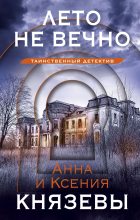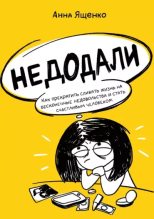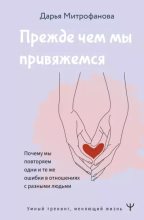- 1
- 2
- 3
- . . .
- последняя (66) »
Rd'osHa ььгчо
THE
NGE AND THE YEAR 2000
ALEXANDER YANOV
Alexander Yanov's timely book convincingly challenges conventional Western views of the So\ iet Union Against the background of the debate nitiated by Gorbachev's reforms and the new policy of glasnost, Yanov argues that a far greater threat faces the West if Gorbachev fails. He identifies this with the Russian Idea - the ideologj of the Russian New Right
The author focuses on the Russian Idea and exam nes the history of the movement from its emergence (simultaneously with Marxism") in the 1830s and up to the early 1980s, when fascist demonstrations took place n the streets of Moscow He argues that the phenomenon of Russian fascism cannot be comprehended in terms of conventional sovietology and he makes a cogent plea that the West respond to the threat posed by che Russian New Right by supporting the emergence of Russia from political and cultural isolation.
If this does not happen Yanov provides a frightening ghmpse of the Russian New Right's vision: they beheve, just as the Bolshev iks at the beginning of this century, that their 1917 is beckoning — that the twenty-first century belongs to them.
This provocative and passionate book intra duces a completely new set of ideas into Western puhHc debate and provides much illumination on events now taking place in the Soviet Union.
$24.95
so«wfuaoH
The Russian Challenge and the Year 2000
The Russian Challenge and the Year 2000
Alexander Yanov
Translated by Iden J. Rosenthal
Basil Blackwell
Copyright © Alexandei V»tw\ I«87
First published 1^7 Basil Blackwell Ltd
I OS Cow lev Road Oxford, OX4 IJF, l К
Basil Blackwell Inc.
432 Г ark Avenue South Suite 1503
New York N4 1001 о US A
All rights reserved. Except for the quotation ef short p»ss«#«?s tor the purposes of cnticisin and review no part of (his publication ma> be reproduced stored m a retrieval system. or transmitted, in am form oi bv ai\\ means electronic, mechanical, photocopying, recording or otherwise w thout the prior permission of the publisher.
Excep> in the United States of America, this book is sold subject to the cond'.ion that it shall not, b\ wa\ of trade or otherwise, be lent re sold hired out or otherwise circulated without the publisher s prior consent n any form of b-nding or cover other than that in w hich it is published and w .hout a siir.lai condition including this condition being imposed on the subsequent purchaser
Bruish Library Cataloguing in Publication Data
Yanov. Alexander
The Russian challenge the USSR and the year 2000
I. Soviet Union — Politics and government — l°53 — 1. Title
320.^47 J>N№3»
ISBN 0-631-15334-0
Library of Congress Cataloging in Publication Data
Yanov Alexander 1^30 —
The Russian challenge and the \ear 2000
Bibliography p. Includes index
I. Sovet Union — Politics and government — 1053
2 dissenters — So\ .et Union S Sobheniisvn, Aleksandr lsae\ ich, Bv I f — 1. Title.
DK2SS \ >o$7 «47 OSS So-^OS-1
ISBN 0-63 1-15334.0
14 peset in 10 on 12 pt Astro b\ Pioneer Associates Perthshire Printed in Great Britain b\ TJ Press Ltd Padstow
To Robert and Margaret Reilly
'The West has supped more than its fill of every kind of freedom, including intellectual freedom. And has this saved it? We see it today crawling on hands and knees its will paralyzed, in the dark about the future, spiritually racked and dejected.'
. . . Alexander Solzhenitsyn
'The mess anic significance of Russia in relation to the West is beyond doubt. Slavophilism alone can still save the West from parliamentarism, unbelief, and dynamite.'
. . . Aleksei Kireev
'If we presume the coming transformation of the Communist Party into the Russian Orthodox Parry of the Soviet Union, we would obt in truly the ideal state, one which would fulfill the historical destiny of the Russian people. It is a question of the Orthodoxization of the entire world.'
. . . Gennadii Shimanov
'Without the Communist Party, by the year 2000 the Zionists will physically exterminate the Russian people together with all our problems.
... An anonymous Russian 'patriot'
Contents
Foreword
Introduction: Russia vs Russia 1
PART I THE HISTORICAL DRAMA OF THE RUSSIAN IDEA
AND AMERICA'S SOVIET DEBATE 17
The Russian Idea: Between Two Hatreds 19
The Russian Idea: Genesis and Degeneration 30
The Russian Idea and Its Critics 49
A Witness for the Defence? 59
The Western Debate and the Russian New Right 64
My Hypothesis 78
Caught in the Crossfire 82
PART II IN ANTICIPATION OF THE YEAR 2000 89
VSKhSON: Beginning of the Dissident Right 91
Young Guardism: The Beginning of the
Establishment Б ght Ю5
Veche: the Loyal Opposition on the Right 128
Enter Fascism: The Nation Speaks 155
Solzhenitsyn\ From Under the Rubble 166
Diabolerie One 185
August 1914: Solzhenitsyn vs Solzhenicsyn 192 lb Diabolene Two 209
When the Sleeper Awakened 223
The Politics of Russian Fascism 231
PART III CONCLUSION 249
Fascism Takes to the Streets 251
Is the West Ready for the Year 2000? 264
Afterword 290
Appendix 292
Index 297
Foreword
In May 1981, at a conference in Washington devoted to Russian nationalism, I was left dumbfounded by the presentation of Jerry Hough, one of the most well-known and radical revisionists in American sovietology The gist of his speech was that all Russians are nationalists. Andrei Sakharov, for example, is just as much a nationalist as Alexander Solzhenitsyn or Leon d Brezhnev. Of course, Hough continued, we must differentiate between the good Russian nationalists and the bad ones, but m principle the problem is clear: when dealing with Russians, no matter who they may be, we are dealing with nationalists.
Richard Pipes, one of the most well-known and radical traditionalists in American sovietology, arrived late at the conference and so missed the presentation of his antipode. The reader may imagine the audience's astonishment when in his speech Pipes, virtually word for word, reiterated Hough's tirade.
On one and the same day to hear one and the same speech from the mouths of two experts who over the course of years have invariably contradicted one another on everything that concerns Russia was, it seems, the most surprising experience of my life in America — all the more so since I too was no novice in the single topic on which these two irreconcilable opponents had, before my eyes, come to terms. Three years earlier, in April 1978, I had even published my first book on this subject, The Russian New Right. The documents I presented there in great number fully excluded everything that this ideological duet composed of the leading figures of both opposing sovietological schools had pronounced in Washington.
To appreciate fully the degree of shock I experienced in listening to Hough and Pipes, the reader must imagine how, say, the author of a book about Catholicism in the sixteenth century would have felt, having heard from respected academics that all Europeans were
Catholics at that time and that the only difference between Marun Luther, the leader of the Reformation, and Ignatius Loyola, leader of the Counter-reformation, was that one was a bad Catholic and the other a good one. In other words, Protestantism was not an independent ideology in its own right that gave 'se to a precisely outlined political doctrine in opposition to Catholicism, but only bad Catholicism.
In May 1981, dupng that conference. I began to regret having published my Russian New Right as early as 1978 — outs.de the context of the Western intellectual debate on Russia. Only recently arrived from Moscow, having been nurtured in a completely different school of thought and fresh from embittered skirmishes with Russian nationalists back at home, I had naively assumed that I was speaking in one and the same conceptual language as my new American readers. 1 believed that the phenomenon of Russian nationalism meant for them the same as it did for me and my fellow-thinkers and opponents in Russia: an age-old, powerful and attractive ideology, the main antagonist to traditional Russian liberalism (Westernism). I assumed that my readers wouid know its history and its political doctrine, that they would know how graphically this doctrine repudiates the central postulate of Western political thought — the separation of executive, legislative and judicial powers — offering instead a medieval postulate about the separation of functions between secular and spiritual authorities I assumed that I would not need to explain to my readers that this doctrine conceives of its political deal not as popular representation, but as a nation-family not requir'ng political guarantees; that separation of chuich from state is anen to '.t; that, in other words, the ideology of Russian nationalism is antagonistic to all the main principles on which modern democracy is based,
Hough and Pipess duet convinced me that there is a chasm between how the term Russian naiionalism is used in Washington and how it is used in Moscow. This rift seemed all the deeper to me when I learned that, m certain run-of-the-mill courses on the subject at American universities, the Westernism of the last century is calmly interpreted as a component part of Russian nationalism, thus confusing the Sakharovs of Russia's past with her Solzhenitsyns, just as American sovietologists had done in Washington, before my eyes with respect to modern times. Then, after another conference in Washington in October 1985, 1 became almost despairing when the American politicians and experts present concluded almost unanimously U was the sole exception) — and entered into the conference record!
— that Russian nationalism is 'the operative ideology' of the present- day Soviet government. The conceptual language of my readers dearly had nothing in common with the language in which my book was wrtten.
As a rule, this conceptual language does not view Russian nationalism as a particulai ideology, or even as a political doctrine. It sees it more as a feeling or seni ment which is merely expressed by ideological symbols. These symbols can either be positive (and then this nationalist sentiment is called patriot
- 1
- 2
- 3
- . . .
- последняя (66) »
